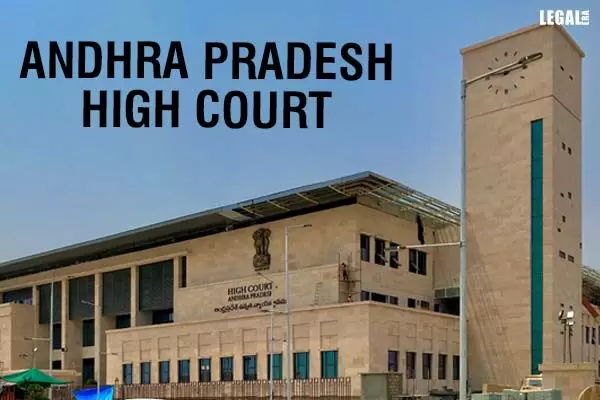- Home
- News
- Articles+
- Aerospace
- Artificial Intelligence
- Agriculture
- Alternate Dispute Resolution
- Arbitration & Mediation
- Banking and Finance
- Bankruptcy
- Book Review
- Bribery & Corruption
- Commercial Litigation
- Competition Law
- Conference Reports
- Consumer Products
- Contract
- Corporate Governance
- Corporate Law
- Covid-19
- Cryptocurrency
- Cybersecurity
- Data Protection
- Defence
- Digital Economy
- E-commerce
- Employment Law
- Energy and Natural Resources
- Entertainment and Sports Law
- Environmental Law
- Environmental, Social, and Governance
- Foreign Direct Investment
- Food and Beverage
- Gaming
- Health Care
- IBC Diaries
- In Focus
- Inclusion & Diversity
- Insurance Law
- Intellectual Property
- International Law
- IP & Tech Era
- Know the Law
- Labour Laws
- Law & Policy and Regulation
- Litigation
- Litigation Funding
- Manufacturing
- Mergers & Acquisitions
- NFTs
- Privacy
- Private Equity
- Project Finance
- Real Estate
- Risk and Compliance
- Student Corner
- Take On Board
- Tax
- Technology Media and Telecom
- Tributes
- Viewpoint
- Zoom In
- Law Firms
- In-House
- Rankings
- E-Magazine
- Legal Era TV
- Events
- Middle East
- Africa
- News
- Articles
- Aerospace
- Artificial Intelligence
- Agriculture
- Alternate Dispute Resolution
- Arbitration & Mediation
- Banking and Finance
- Bankruptcy
- Book Review
- Bribery & Corruption
- Commercial Litigation
- Competition Law
- Conference Reports
- Consumer Products
- Contract
- Corporate Governance
- Corporate Law
- Covid-19
- Cryptocurrency
- Cybersecurity
- Data Protection
- Defence
- Digital Economy
- E-commerce
- Employment Law
- Energy and Natural Resources
- Entertainment and Sports Law
- Environmental Law
- Environmental, Social, and Governance
- Foreign Direct Investment
- Food and Beverage
- Gaming
- Health Care
- IBC Diaries
- In Focus
- Inclusion & Diversity
- Insurance Law
- Intellectual Property
- International Law
- IP & Tech Era
- Know the Law
- Labour Laws
- Law & Policy and Regulation
- Litigation
- Litigation Funding
- Manufacturing
- Mergers & Acquisitions
- NFTs
- Privacy
- Private Equity
- Project Finance
- Real Estate
- Risk and Compliance
- Student Corner
- Take On Board
- Tax
- Technology Media and Telecom
- Tributes
- Viewpoint
- Zoom In
- Law Firms
- In-House
- Rankings
- E-Magazine
- Legal Era TV
- Events
- Middle East
- Africa
Andhra Pradesh High Court: Writ Petition Is Not the Appropriate Recourse for Executing an Arbitration Award

Andhra Pradesh High Court: Writ Petition Is Not the Appropriate Recourse for Executing an Arbitration Award
The division bench of the Andhra Pradesh High Court, led by Justices Dhiraj Singh Thakur and R. Raghunandan Rao, held that the court does not possess jurisdiction in a writ petition to enforce an arbitration award that has already been challenged under Section 34 of the Arbitration and Conciliation Act, 1996.
The respondent, M/s. Vijayanagaram Hatcheries Pvt. Ltd., had filed a writ petition in the Andhra Pradesh High Court seeking enforcement of an arbitration award. He contended that despite the appellant National Highways Authority of India having acquired his land measuring one acre twenty-one cents and two acres twenty-four cents and having determined compensation through an arbitration award, they had not disbursed the payment in his favor.
The respondent argued that the appellant had contested the award before the arbitrator (the district collector) pursuant to Section 3G(5) of the National Highways Act, 1956, and the challenge was rejected on 05.04.2022. According to the respondent, as the award has been affirmed and reached a conclusive state, the appellant's refusal to release the compensation payment is unjust and unlawful.
In reply to these contentions, the court, determined that there was no challenge made against the award. Acknowledging the conclusive nature of the award, the judge instructed the appellant to deposit the compensation amount owed to the respondent as per the award. Dissatisfied with this decision, the appellant filed a writ petition under Clause 15 of the Letters Patent, challenging the ruling in the High Court.
The appellant contended that the respondent failed to disclose that the arbitrator's order was being contested under Section 34 of the Arbitration and Conciliation Act, 1996, and was awaiting adjudication.
The High Court referred the Supreme Court's judgment in the case of National Highways Authority of India v. Sheetal Jaidev Vade & Ors, emphasizing the Supreme Court's stance against entertaining writ petitions under Article 226 of the Constitution of India for the enforcement of awards issued by arbitral tribunals or courts. The Supreme Court, in the cases, expressed disapproval of a judgment and order issued under Article 226, directing the NHAI to deposit the entire compensation amount awarded by the arbitrator and permitting the original landowners to withdraw said amount.
The High Court referred to the Supreme Court's observations and highlighted that the High Court should not have entertained the writ petition under Article 226 for execution purposes, as it effectively assumed the role of an executing court. Drawing parallels to the current case, the High Court found similarities to those considered by the Supreme Court. It ruled that the appellant (NHAI) had initiated proceedings under Section 34 of the Arbitration Act before the learned district judge, and these proceedings were still pending. The High Court acknowledged that this crucial information could not have been brought to the attention of the single judge during the initial proceedings, as the appellant was not represented on the date when the judgment and order were passed.
In light of the principles outlined in the judgment referred to earlier, the decision and order made by the court cannot be upheld and are thus overturned. Consequently, the High Court set aside the judgment and order.



